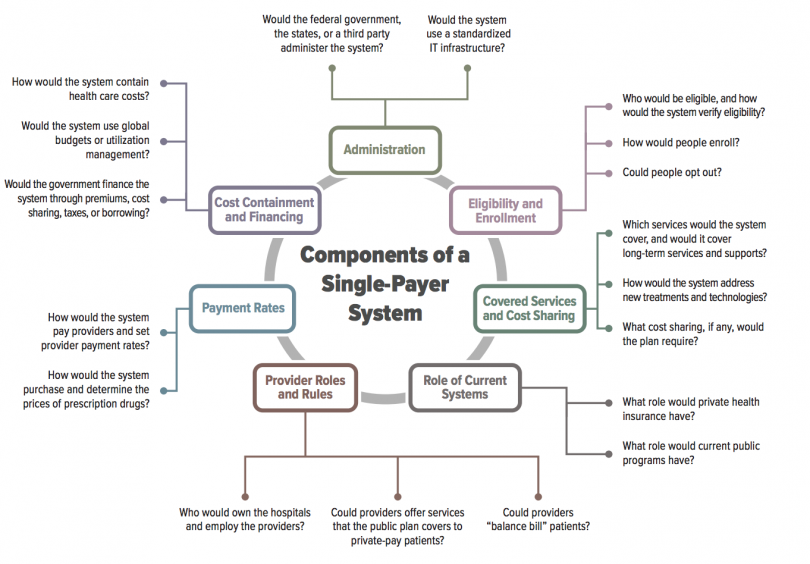On Wednesday, May 1, the Congressional Budget Office (CBO) released a report on Medicare for All. The report looks at the many factors at play if the US were to transition to Medicare for all. Rather than express a view on whether Medicare for all could reduce national health care spending and guarantee Americans access to good care, it lays out a framework for thinking about a successful Medicare for all system.
The CBO considered a number of the design considerations and choices involved in moving to a single-payer Medicare for all system. CBO looked at seven variables: Administration, Eligibility and financing, Covered services and financing, Role of current systems, Provider roles and rules, Payment rates, Cost containment and financing.
CBO is clear that Medicare for all would guarantee coverage to everyone in the US. Today, the government pays for slightly over half of our $3.5 trillion health care spending. Still, about 29 million Americans are uninsured, about 11 percent of the population and millions more are underinsured.
As health economist Robert Pollin points out in CommonDreams, CBO also recognizes that a Medicare for all system would end turnover in our health care system, allowing the system to invest in the long-term health care needs of Americans.
“Unlike private insurers, which can experience substantial enrollee turnover over time, a single-payer system without that turnover would have a greater incentive to invest in measures to improve people’s health and in preventive measures that have been shown to reduce costs.”
The CBO posits that the federal government could administer Medicare for all in the same way to administers Medicare today. Or, it could delegate that authority to the states. Since many states lack the skill and the resources to administer a single-payer program, and if the Affordable Care Act is any indicator, the will to do so, delegating to the states could jeopardize care for millions of Americans. It would also add to the bureaucracy.
The CBO did not offer cost estimates for different designs since there are so many variables. It explains that costs will vary depending upon how Medicare for all ultimately looks. But, it points out that Medicare for all would give policymakers tools for reining in costs not currently available to them.
“In addition to those design choices, policymakers could consider using two other techniques to contain the growth of government spending on the single-payer plan and total health care spending: global budgets and utilization management.”
Here’s more from Just Care:
- Medicare for all controls spiraling health costs
- New study finds Medicare for all generates overall savings of more than $5 trillion
- Congresswoman Jayapal introduces Medicare for All bill
- Medicare ratings of Medicare Advantage plans a farce
- Ten ways Medicare Advantage plans differ from traditional Medicare










